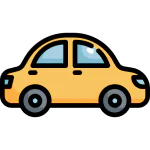Traffic rules, fines and toll roads in Lithuania: everything drivers need to know
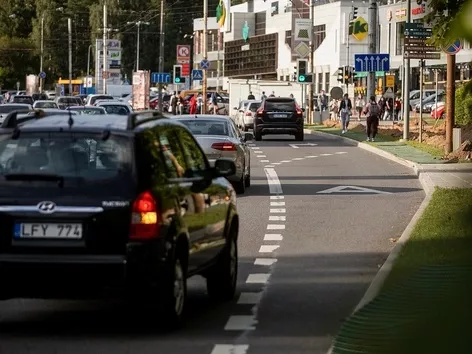
Driving rules in Lithuania have their own peculiarities, so before planning a road trip, it is worth learning about them so as not to endanger yourself and other road users. Find out the most important things about the main differences in traffic rules, toll roads and fines, and how drivers face violations
Lithuania, which is one of the most developed countries in Eastern Europe, is known not only for its cultural heritage and beautiful landscapes, but also for its high level of road safety. For drivers planning to travel in Lithuania, it is important to familiarize yourself with the traffic rules, penalties and other nuances in order not to endanger yourself and other road users. Below, we will look at the main aspects that are worth considering to make your trip safe and comfortable.
The main features of Lithuanian traffic rules
1. In Lithuania, right-hand traffic is used.
2. The car must have a first aid kit, a fire extinguisher, an emergency stop sign and a reflective vest.
3. The maximum permissible level of alcohol in the driver's blood is 0.4 ppm. For new drivers and those under the age of 21, the maximum permissible level is 0.0 ppm.
4. Talking on the phone while driving is prohibited
5. Drivers and all passengers must always wear seat belts - this is mandatory for the front and rear seats.
6. For children under the age of 12, the use of child seats or boosters is mandatory.
7. Dipped headlights must be on 24 hours a day throughout the year, regardless of weather conditions.
8. From November 10 to March 31, the use of winter tires is mandatory. Studded tires are allowed only from November 1 to April 9, and chains are allowed only when driving on snow or ice.
9. Public transport in Lithuania has priority, so drivers of passenger vehicles are obliged to give way and are not allowed to overtake buses, trams and other vehicles when they stop for boarding and disembarking passengers.
Please note! Violation of these and other traffic rules is subject to fines. In some cases, drivers risk not only losing their finances, but also being deprived of the right to drive. For example, a driver who fails to stop before a pedestrian crossing and runs a red light may be deprived of his or her license for 1-6 months. And drivers who have recently received a driver's license may be deprived of their license for 12 months for exceeding the speed limit by 30-40 km/h.
At the same time, driving under the influence of alcohol (when the percentage of ppm in the blood exceeds the legal limit) is punishable by the highest penalties, especially if the driver endangered other road users or got into an accident. In such cases, the fine will reach several thousand euros, and the driver's license will be taken away for 3-5 years.
Speed limits
For cars and motorcycles:
– within settlements - 50 km/h;
– outside settlements - 90 km/h
– roads - 120 km/h
– highways - 60 km/h - minimum speed, 130 km/h - maximum speed.
For vehicles with a trailer:
– within settlements - 50 km/h
– outside settlements - 90 km/h
– roads - 90 km/h
– highways: 60 km/h - minimum speed, 90 km/h - maximum speed.
Visit Ukraine on social media: Telegram | YouTube | Instagram | Facebook | Twitter | TikTok
Toll roads in Lithuania
Toll roads in Lithuania are only available for trucks and buses. Cars and motorcycles are free of charge. However, the country has a special system of vehicle categorization:
➤ L (L1, L2, L3, L4, L5, L6, L7) - mopeds, motorcycles, ATVs;
➤ M (M1, M2, M3):
– M1 - passenger cars with up to 8 seats (excluding the driver's seat);
– M2, M3 - vehicles with more than 8 passenger seats (such as Mercedes Sprinter);
➤ N (N1, N2, N3):
– N1 - vehicles with a weight of up to 3.5 tons intended for the transportation of goods (such as Renault Master);
– N2, N3 - vehicles weighing more than 3.5 tons intended for the transportation of goods.
Thus, only L and M1 categories of vehicles don't have to pay tolls on toll roads. For the rest of the categories of cars, the toll will be charged. You can purchase a vignette for traveling on toll roads online on the official website.
Mandatory documents and insurance for entering Lithuania by car
To enter the country you must have:
– an international passport;
– driver's license;
– vehicle registration documents;
– international insurance policy "Green Card".
If any of these documents are missing, the person will not be allowed to cross the border. At the same time, in the absence of mandatory international insurance, the driver may be fined.
You can apply for a Green Card quickly and easily on the Visit Ukraine portal. Follow the link and apply for an insurance policy for the required period in just a couple of minutes. The finished insurance will be sent to your email immediately.
We have described in detail how to prepare a car for a trip abroad in this article.
Photo: D. Umbraso / LRT nuotr.
Want to know more? Read the latest news and useful materials about Ukraine and the world in the News section.
Darya Rogova is the head of the Visit Ukraine insurance department
A Green Card is not only a mandatory document for traveling abroad by car, but also a guarantee of financial security and safety for the driver and passengers. To avoid risks and fines, take out international insurance on the Visit Ukraine portal. We cooperate only with reliable insurance agents.
Our recommendation for a safe and comfortable trip:
Visit Ukraine Insurance - insurance for a safe stay abroad without unnecessary expenses;
Green Card - compulsory car insurance for traveling abroad;
Visit Ukraine Tickets - book tickets for buses, trains, and airplanes to/from Ukraine and between cities around the world;
Private Lawyer service - professional legal support on visa and migration issues;
Visit Ukraine Merch - buy patriotic clothing and accessories with worldwide delivery.
© 2018-2024, Visit Ukraine. Use, copying or reprinting of materials on this site is permitted only with a link (hyperlink for online publications) to Visit Ukraine.
All rights reserved.
Recommended articles
3 min
Transport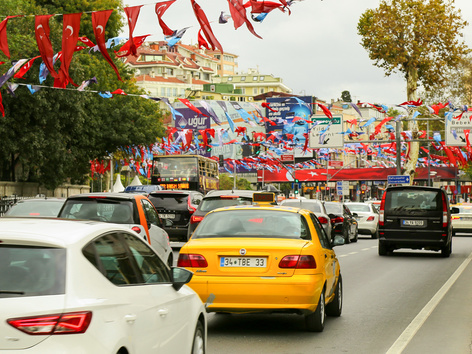
Rules for importing cars with Ukrainian license plates to Turkey: important nuances in 2024
Since the beginning of the full-scale invasion, a large number of Ukrainians have been traveling to Turkey in their own cars. Learn more about the most important rules for staying in Turkey with your own car
12 Mai. 2024
More details1 min
Regeln für die Einreise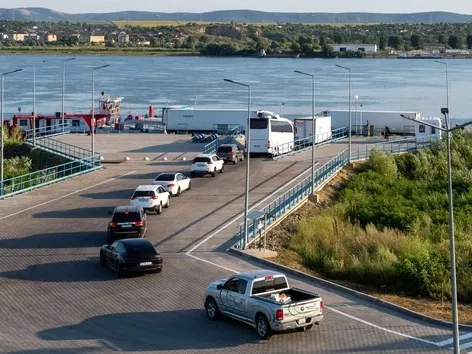
Orlivka - Isakcha ferry crossing: working hours and border crossing rules
Today, the Orlivka - Isakcha ferry crossing is the shortest way from Ukraine to the countries of Southern Europe and Turkey. Find out more about the ferry schedule, border crossing rules and the time required to cross the border
12 Mai. 2024
More details2 min
Für Flüchtlinge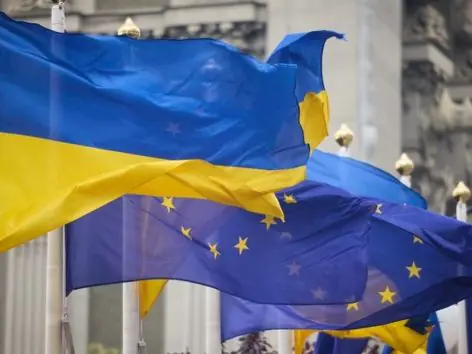
EU extends temporary protection for refugees from Ukraine: important details
Ukraine and the European Commission have agreed to extend temporary protection for Ukrainians in the EU. The status will be reviewed only after the security situation in the country improves. Learn more about the changes in obtaining temporary protection for Ukrainians in the EU
13 Mai. 2024
More details1 min
Transport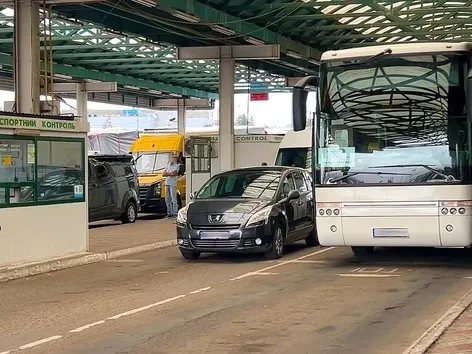
An electronic queue for buses has been launched on the border with Romania: details
As part of the reform of international bus transportation, the Ministry of Communities, Territories and Infrastructure has launched an electronic queue at the checkpoints between Ukraine and Romania. Find out at which checkpoints you can now cross the border without waiting in line and for which flights online check-in is available
13 Mai. 2024
More details

